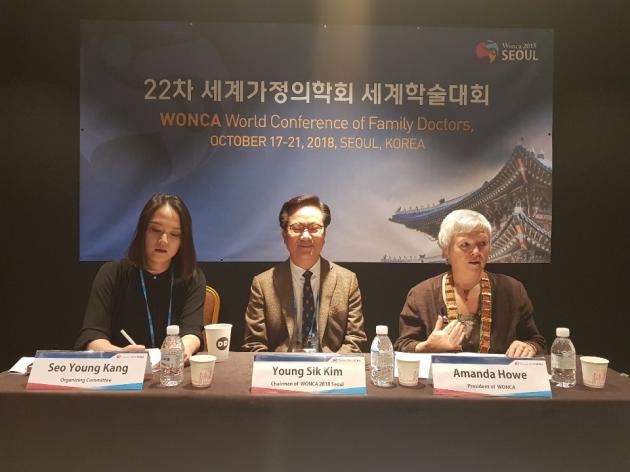The World Organization of Family Doctors said Tuesday that it would announce a statement to express its commitment to enhancing primary health care at the WONCA 2018 conference in Seoul.
WONCA is a global network of approximately 2,000 family doctors from 150 countries.

The statement, named Seoul Declaration, is a consensus among global family doctors to urge all governments and health systems to prioritize the health needs of the most vulnerable, especially ensuring access to affordable and effective care for all of whom disadvantaged in the health system, such as the people in rural areas, women, children and the elderly.
WONCA added that it fully supports the World Health Organization’s “Astana Declaration” made earlier this year, which made an international commitment to strengthening primary healthcare to achieve universal health coverage.
The declaration will also state that as family doctors they will play their full part in implementing both the Astana and Seoul declarations and advised countries to invest in the training of skilled family doctors through the development of academic capacity starting with medical school level, effective recruitment and retention policies, postgraduate training programs, and continuous professional development.
“The declaration is valuable in that it makes a visible message to the world,” WONCA President Amanda Howe told reporters during a news conference Tuesday. “Therefore, the Seoul Declaration will show the world what we think matters in the medical sector and using it to appeal to other groups, while showing our commitment to bringing good healthcare.”
The organization will do its best to follow through as a declaration is only useful when it is practical, she added.
During the media briefing, Howe also noted that equality healthcare is also a crucial part.
“Although a country may have a strong healthcare system in place, the quality of service tends to differ based on the region such as rural areas,” she said. “Of course, family doctors would like to do their part in helping improve such regions. However, the government also has to do its part in supporting the doctors achieve that goal.”
WONCA reaffirms that investment of resources in the primary healthcare sector will achieve a comprehensive, personalized primary care that responds effectively to people’s health needs in every community in the world, she added.
When asked how important primary healthcare is, Professor Howe noted that it is the first line of defense against illnesses. “If you look at different countries some of them are spending much money in hospital sectors while investing little in primary healthcare,” Howe said. “This, in turn, makes healthcare expensive in such countries.”
However, for countries with a strong primary healthcare system that is accessible, affordable and good, it leads to lower costs and improved health, she added.
Howe stressed that such aspects are necessary as the upcoming of the aging society will increase healthcare expenditure for most countries. “The fact is healthcare is expensive, and there is no way around it,” she said. “What is important is that how that money is being used.”
WONCA unveiled the Seoul Declaration during its opening ceremony at COEX, southern Seoul, on Wednesday.

